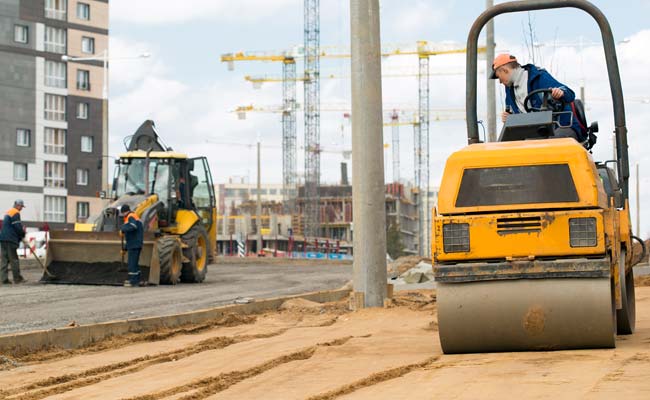
Widening of highways to reduce petrol consumption, fuel trade
Himanshu Vatsa | The Dollar Business  Widening of highways can reduce petroleum consumption and prove to be a boon for the growth of manufacturing sector and trade of various goods across India as well as abroad. The Centre, on Wednesday, approved projects worth Rs 5,529.17 crore for the development of three national highways—NH-1 in Delhi and Haryana, NH-2 in Uttar Pradesh and NH-13 in Maharashtra. Transport operators hailed the decision which came during a meeting of the Cabinet Committee on Economic Affairs chaired by Prime Minister, Narendra Modi. “If the government develops any road, the logistics cost reduces. Widening of national highways will not only ease the movement of vehicles but also reduce fuel consumption,” said P L Khaitan, Chairman of Khaitan Logistics Pvt Ltd, a Haryana-based transport operator engaged in transporting automobiles. The new project will cover eight-laning of a 70-km stretch of NH-1 connecting Delhi to Panipat in Haryana, six-laning of Agra-Etawah section (124-km) of NH-2 in Uttar Pradesh and a 109-km route on the Solapur-Bijapur section of NH-13 in Maharashtra. The estimated cost of Delhi-Haryana link is Rs 2204.51 crore, while the budget for UP highway is Rs 1787.02 crore. The widening of Maharashtra highway will cost Rs 1537.64 crore. The total project costs include the cost of land acquisition, rehabilitation and other pre-construction activities. All the projects will be carried out on the basis of build-operate-and transfer (BOT) model. The objective of these projects is to improve infrastructure and reduce the time and cost of travel for traffic, particularly heavy traffic, a government statement said. Even though the number of vehicles has increased manifold in the past two decades, roads do not have space to accommodate them. “Transport operators, who are the major links between manufacturers, suppliers and consumers, suffer the most due to disrupted movement of commercial vehicles,” Khaitan told The Dollar Business. According to a study conducted by IIM-Calcutta, disruption of vehicular movement on roads cost the economy around Rs. 87,500 crore per annum. The loss is almost three times the annual petroleum subsidy budget of the current fiscal announced by the government in this budget.
Widening of highways can reduce petroleum consumption and prove to be a boon for the growth of manufacturing sector and trade of various goods across India as well as abroad. The Centre, on Wednesday, approved projects worth Rs 5,529.17 crore for the development of three national highways—NH-1 in Delhi and Haryana, NH-2 in Uttar Pradesh and NH-13 in Maharashtra. Transport operators hailed the decision which came during a meeting of the Cabinet Committee on Economic Affairs chaired by Prime Minister, Narendra Modi. “If the government develops any road, the logistics cost reduces. Widening of national highways will not only ease the movement of vehicles but also reduce fuel consumption,” said P L Khaitan, Chairman of Khaitan Logistics Pvt Ltd, a Haryana-based transport operator engaged in transporting automobiles. The new project will cover eight-laning of a 70-km stretch of NH-1 connecting Delhi to Panipat in Haryana, six-laning of Agra-Etawah section (124-km) of NH-2 in Uttar Pradesh and a 109-km route on the Solapur-Bijapur section of NH-13 in Maharashtra. The estimated cost of Delhi-Haryana link is Rs 2204.51 crore, while the budget for UP highway is Rs 1787.02 crore. The widening of Maharashtra highway will cost Rs 1537.64 crore. The total project costs include the cost of land acquisition, rehabilitation and other pre-construction activities. All the projects will be carried out on the basis of build-operate-and transfer (BOT) model. The objective of these projects is to improve infrastructure and reduce the time and cost of travel for traffic, particularly heavy traffic, a government statement said. Even though the number of vehicles has increased manifold in the past two decades, roads do not have space to accommodate them. “Transport operators, who are the major links between manufacturers, suppliers and consumers, suffer the most due to disrupted movement of commercial vehicles,” Khaitan told The Dollar Business. According to a study conducted by IIM-Calcutta, disruption of vehicular movement on roads cost the economy around Rs. 87,500 crore per annum. The loss is almost three times the annual petroleum subsidy budget of the current fiscal announced by the government in this budget.
This article was published on April 23, 2015 – 3:27 pm IST.




KerunIp_AAHK_02_1620.jpg)

 to success.
to success.